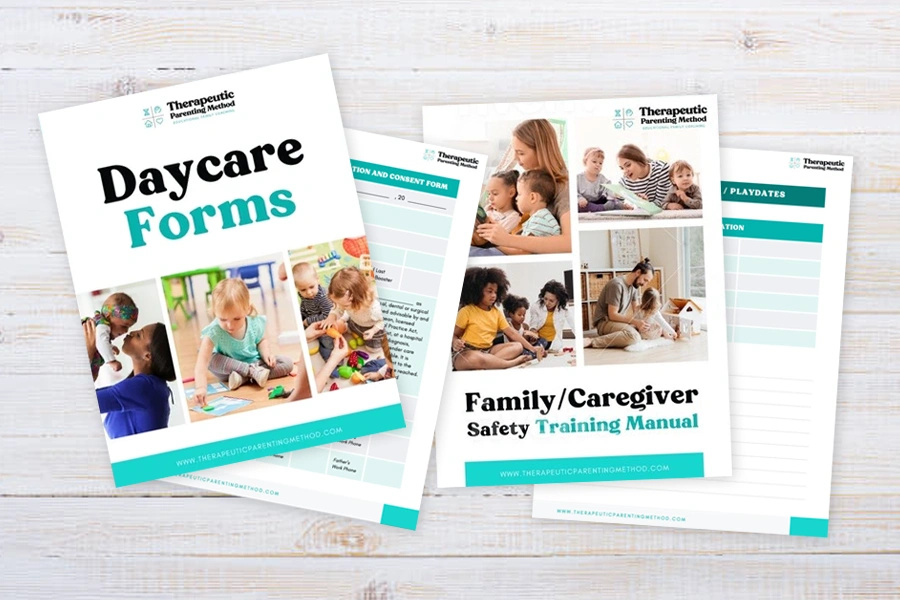You may be considering hiring a nanny for your childcare needs but are unsure exactly what to expect from them.
How many job responsibilities are too many? How many hours can you expect a part-time nanny to work?
Choosing who to welcome into your home to care for the most important people is no small decision.
You should be confident that you know exactly what you’re getting when you do find a nanny you want to hire.
My guide will walk you through:
- A few of the responsibilities you can expect from a nanny
- The difference between a nanny and a babysitter
- Some of the benefits of having a nanny (for you and your child/children)
What is a Nanny?
According to Cambridge Dictionary, a nanny is “a person whose job is to take care of a particular family’s children.”
A nanny looks after children in the children’s home and tends to all of the children’s needs.
A full-time nanny can work anywhere from 40 to 60 hours per week, while a part-time nanny can work anywhere from 15 to 35 hours per week.
Nannies can sometimes be an affordable alternative to daycare/childcare facilities, depending on the salary range offered and especially if a family has more than one child to be cared for.
Nanny Definition
Nannies are very involved in the children’s and families’ lives.
They are usually fully invested in a child’s development and well-being.
Responsibilities can differ from nanny to nanny, but using the Therapeutic Parenting Method, we ask parents to examine:
- The Biological needs of the child.
- The Developmental stage of the child.
- The child’s emotional makeup
- The family’s home environment
Identifying The Difference Between Nanny And Babysitter
The line between a nanny vs. babysitter can often be blurred.
But you should know that there is a pretty clear difference between the two.
Nannies are professional, in-home childcare providers who are employed by parents to provide customized and personalized childcare for their children in their home.
The main and most important distinction between nannies and babysitters is the frequency of interaction with the child or children.
According to Merriam-Webster Dictionary, Babysitters typically care for children “during a short absence of the parents” Babysitters are typically short-term caretakers who are hired to watch the children for a set period of time, ranging from:
- Overnights
- After school
- Date nights
- And more

Nanny Responsibilities
Nanny duties can vary depending on the requirements of the family, but there are a few common responsibilities that you can expect and should not expect from your nanny.
Typically, nannies:
- Handle education, the social and physical well-being of the child.
- Nannies may take the children to school, feed them breakfast, and do their laundry.
Typically, nannies focus on the needs of the child, not always the needs of the family.
Nannies may shop for healthy foods to plan and cook nutritious meals, then wash the children’s dishes, and clean up the kitchen and/or dining room.
Nannies may not cook for the family, but may start meal preparations.
With babies, nannies will:
- Prepare bottles
- Do feedings
- Take care of diaper changes
- Wash bottles
- Give baths
- Rock the baby
- Cuddle
- Follow a nap schedule
Nannies will tidy up after the children, but do not do always perform general housework.
Nannies will plan safe, engaging activities (both indoors and out) using:
- Games
- Books
- Playdates
- Singing
- Age-appropriate toys
Nannies may drive the children to:
- School
- Lessons
- Activities
- Appointments
Nannies can run errands.
Nannies may occasionally travel with the family on vacations to assist with caring for the child or children.
Benefits Of Having A Nanny
A nanny serves as a role model for the children by teaching them many life skills, including:
- Manners, Compassion and empathy
- How to care for their belongings
- Proper grammar
- Good sportsmanship
Nannies may also help pick out appropriate outfits for the children to wear.
One huge benefit is that nannies offer parents added flexibility.
Typically, a nanny will stay with a family for at least one year, or until the family or nanny’s situation changes. Other nannies will stay longer.
Additionally, having a nanny can provide many families with peace of mind.
A nanny can help meet the…
- Physical
- Emotional
- Social
- Intellectual
…needs of the children in surroundings that are familiar to them.
Overall, a nanny can help children become productive and happy adults by having an additional third caregiver in addition to their parents.

How Much To Pay A Nanny
There is no license required of the caregiver.
It is legally required that parents pay the nanny minimum wage and must follow other employer requirements (like paying Social Security and Unemployment Insurance) offering paid vacation, sick days, and holidays. Some families will contribute to or pay for the nanny’s health insurance.
Our founder Tammy’s book Secrets of The Nanny Whisperer helps parents think out and outline their job requirements.
To ensure all parties are on the same page, you’ll need to discuss these options directly with your potential nanny or seek nanny consulting to obtain the proper guidance and education.
Shop the Story
- AHA Healthy Family Meals: 150 Recipes Everyone Will Love: A Cookbook
- Pampers Swaddlers Diapers
- Evenflo Feeding Bottles
- Montessori Toys for Toddlers
What is Therapeutic Parenting Solutions?
We understand the importance of having access to expert care and the challenges working parents face while raising a family. Therapeutic Parenting allows families to get the care they need on their schedule. Whether it’s a video conference from the office, a phone call on your commute to work or even a call in the middle of the night – parents can get the support and guidance they need from an expert they can trust. From feeding a newborn to helping your teen handle a new phone, Therapeutic Parenting can guide you to a solution.
What is the Therapeutic Parenting Approach?
Our Approach focuses on educating both the heart and mind while integrating the methodology training system we created to help parents better understand their children. While there are many parent coaches, therapists, and consultants, our unique approach combines legitimate training and proven research with an empathetic passion for educating parents without judgment or pressure to buy into a product or service.
What is the Therapeutic Parenting Method?
Like E=MC2, our formula provides parents with the tools they need to overcome their challenges. Our equation focuses on 4 fundamental areas of each child and our belief is that to truly achieve “Therapeutic” parenting, a parent must approach every success and struggle with an understanding of how it affects their child holistically. Many parenting methods and programs typically focus on one area of a child or use the wrong technique – which can cause more harm than help. We developed this equation from over 20 years of research, testing, and combining the most critical components of a person’s life: biology, development, environment, and emotion. Finally, parents have a guide they can tangibly follow and reapply to understand their children and ultimately – better communicate with them and advocate for them. Our one-of-a-kind method allows logic and order to supersede emotion and chaos, making a profound difference in the bonding and attachment to caregivers and children.



